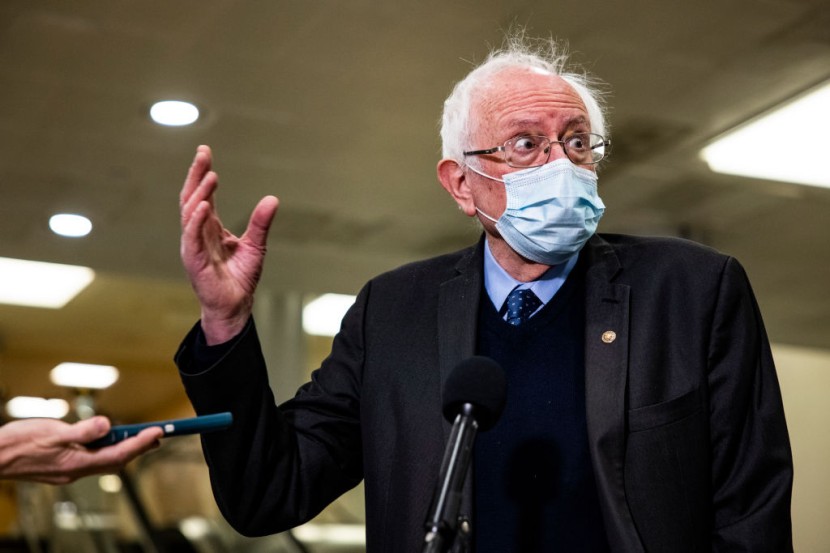
Despite facing a likely rejection from the Democratic-majority Senate, Senator Bernie Sanders (I-VT) emphasized that the $15 federal minimum wage is not a radical idea. The independent senator will be pushing the federal minimum wage mentioned if the chamber will eventually vote on the said measure.
Bernie Sanders Upholds $15 Minimum Wage
A lot of Democrats are pushing the inclusion of the raise on the federal minimum wage from $7.25 to $15 in the $1.9 trillion COVID-19 stimulus package of United States President Joe Biden, and Congress is set to add it in the legislation, which will be sent to the Senate later on. But the hike on the federal minimum wage is opposed by two Democratic senators, specifically, senators Kyrsten Sinema (D-AZ) and Joe Manchin (D-WV), Fox News reported.
Both Democratic senators have ruled out voting for it. In the Republicans and Democratic caucus in the Senate, the result is a 50-50 split. Since the deciding vote lies in United States Vice President Kamala Harris's hand, Democrats will have a slim and fragile majority.
Thank you @USProgressives for your leadership. The Covid Bill in the House increases stimulus checks to $2000 for the working class, raises the minimum wage to $15 an hour, cuts childhood poverty in half and extends unemployment benefits. The Senate must prepare to act quickly.
On Sunday, the independent senator posted that the $15 federal minimum wage is not a radical idea on his Twitter account. What's radical is that 650 billionaires became more than $1 trillion richer during a global health crisis. Sanders also pointed out that there is a need for raising the minimum wage to a living wage.
Read Also: Biden Urges Congress to Impose Strict Gun Law Reforms on Parkland Shooting's 3rd Anniversary
Sanders's tweet followed comments on Friday when he expressed his confidence to the media about having the bill included in the overall package. According to Newsweek, Sanders, who is also the chairman of the Senate Budget Committee, shared to the reporters at the U.S. Capitol that they feel good and think that the people of America want the raise, and that's what he's going to do.
In an interview published Friday, Sinema mentioned that what is more important is whether or not directly related to the short-term coronavirus relief; she will not be supporting it in this legislation. She also pointed out that the federal minimum wage provision is not appropriate for the reconciliation process as it is not a budget item, and it should not be in there.
Meanwhile, senators from the Republican party opposed the inclusion of the minimum wage, arguing that the raise would be too costly for small businesses, especially because many have struggled due to the ongoing pandemic.
Last week, the Congressional Budget Office mentioned that 900,000 Americans would be moved out of poverty if the minimum wage was raised to $15. But it also estimated that the possible increase would be leading to a loss of 1.4 million jobs and the increase of the federal budget deficit by $54 billion over the next ten years. Based on the proposal of the Democrats, the wage increase would be phased through 2025, Indepedent reported.








